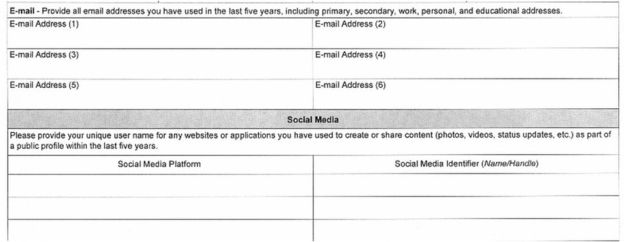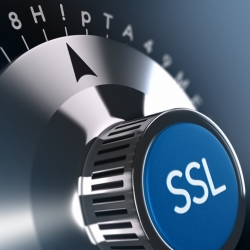Social Media Activity May Prevent Acquisition of U.S. Visas for Foreigners
If you thought your social media activity was of no consequence, you might want to take time to reconsider a newer reality when considering traveling either out or back to the United States in the near future.The intrusion into our online activity continues to proliferate throughout our modern-day society. For instance, employers are likely to ask similar questions on job applications. You may be offended, you might bristle and say, “Hey! We don’t need to provide that kind of information!” You’re right. Just understand that those prospective employers don’t have to hire you for their job either.
So … if foreigners are now being asked to provide online aliases and email addy’s before they are able to get a visa to enter the United States, how long before similar requirements are made of U.S. citizens in order to travel abroad and then get back into the country? Probably sooner than we would like to accept and preventing terrorism will be its justification.
Get used to it. These invasions of privacy will continue to persist long into our futures because there’s no stopping the technology that already exists. It's only going to continue to get worse because the technology of surveillance and monitoring equipment continues to advance at a rate of OMG to the power of "it can't be!".
Will the additional information acquired actually provide better protection from terrorist threats? The ACLU suggests that it won’t and those with evil intent will simply take extra precautions to avoid detection.
So, the ongoing data acquisition will continue to occur. Whether or not it will achieve goals to actually prevent terrorism remains uncertain. Only time will provide the answers which can or might justify an ongoing need to acquire the additional data.
But will a lack of need result in stopping the practice of acquisition of that data? It may be a cynical response, but don't count on it. Once that practice begins, somebody in the system will always continue to insist on the importance of the process continuing -- whether or not it might actually serves a greater good or purpose. Good luck getting past that thinking.
U.S. embassies start new vetting of visa applicants










